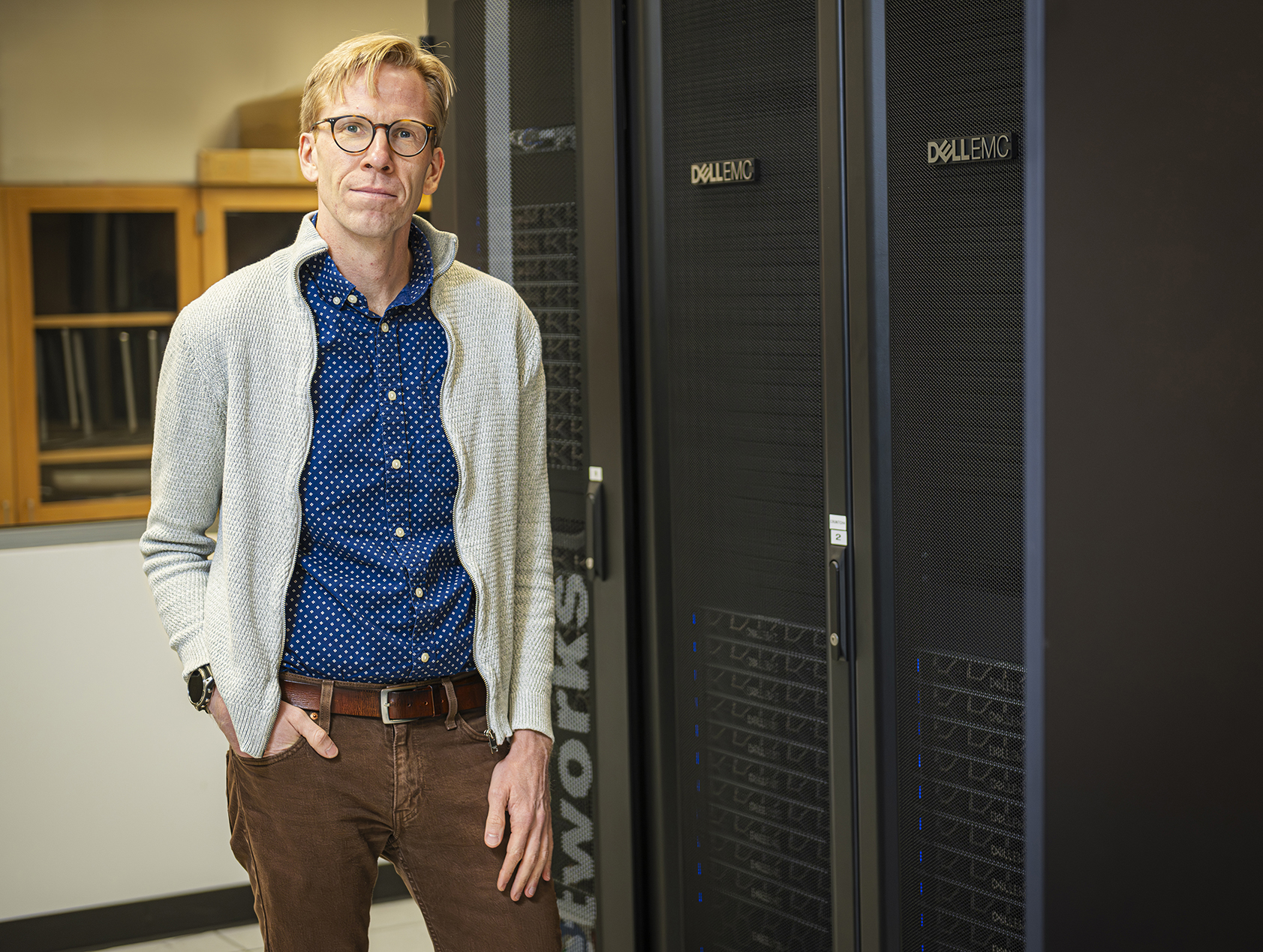
Omar Valsson, UNT College of Science assistant professor of chemistry, earned the highly competitive 2023 Early Career Award from the U.S. Department of Energy — a first for any UNT faculty member.
Valsson is one of only 93 in the nation and only three in Texas to be named a recipient of the award this year from the department’s Office of Science’s Early Career Research Program. Started in 2010, the annual DOE award recognizes outstanding researchers at universities and DOE national laboratories who are early in their career, providing them with pivotal funding to boost their research.
“We are proud Dr. Valsson is the first UNT faculty member to be selected for this national award,” UNT College of Science Dean John Quintanilla says. “This is a testament to his exceptional work and representative of the quality researchers we have in our Department of Chemistry, which continually leads the college in dollars received per capita from sponsored project awards.”
As part of the award, Valsson will receive a total of $875,000 distributed over the next five years to support his theoretical and computational chemistry research. The grant also will allow him to add an undergraduate student to his research group, which currently includes five graduate students in chemistry.
“This is such a competitive award and I’m honored to be selected,” Valsson says. “This is the first grant I have earned while at UNT, so it comes at a formative time as I’m establishing my research group here.”
Valsson is working alongside his student researchers to develop a new method to better predict the behavior and properties of polymorphic molecular crystals, which currently is one of the most challenging computational chemistry tasks. Polymorphism refers to the possibility of molecular crystals having two or more crystalline phases with different molecular arrangements, but identical chemical formulations.
“These molecular crystals have immense scientific and practical importance in chemistry, materials science and the pharmaceutical and semiconductor industries,” Valsson says. “For example, different polymorphs of a pharmaceutical drug can have very different rates of dissolving, which can affect how the drug works in the body.”
Through his research, Valsson will create a new simulation method that he will make accessible to other scholars and professionals.
“All methodological development resulting from the project will be made publicly available in open-source codes, so that the wider scientific community can make use of them. Thus, I hope that the methods developed in this research project can find a wide usage, both in academia and industry.”